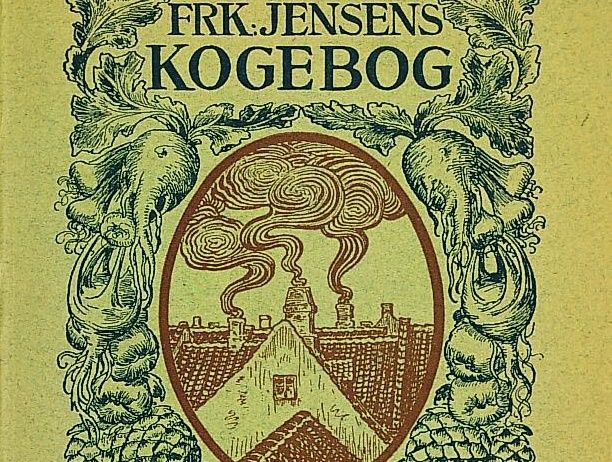The book finds its way onto the gift table of every newly-married couple, though if you have a kitchen in Denmark, your copy may have been handed down to you, dog-eared and stained, upon getting your first apartment.
Denmark’s Mrs Beeton
The recipes are far from the decadence of ‘Babette’s Feast’, but for anyone who wants to learn the A to Å of the national cuisine – simple, hearty fare, cleanly presented – on which every youngster in the country cuts their teeth, ‘Frøken Jensen’s Kogebog’ (Miss Jensen’s Cookbook) is the tome no kitchen can afford to be without.
Like the British 19th century chef Mrs Beeton, Miss Jensen has acquired an iconic status as the spinsterish patron saint of the national kitchen. The matronly Jensen was also a real person – a product of a way of life that pushed girls into life-long domestic service due to circumstances largely out of their control.
Burden-easing bestseller
Kristine Marie Jensen was born in 1858 in Randers and orphaned during her early childhood. Miss Jensen lived with her grandmother until reaching confirmation-age, at which point she made her way to Copenhagen to pursue a course in household management at the famous Nathalie Zahle School.
After an apprenticeship in England, Miss Jensen was hired by the Melchior household, whose son Laurentz would go on to become one of the great Wagnerian opera singers of the age.
Following years of faithful household service, Miss Jensen composed her modest guide to housekeeping in 1901 – a book which began, modestly enough, with Jensen’s preface: “How often one hears our housewives complain over the great burden they bear through housekeeping, and especially daily food preparation!”
The book became an instant bestseller, appearing in no less than 27 editions prior to Jensen’s death in 1923.
A golden age of cookbooks
To understand the sensational popularity of Miss Jensen’s cookbook upon its initial publication – and perhaps why its appeal endures today – requires some understanding of Miss Jensen’s times.
The 19th century in this country was itself a Golden Age of gastronomy, the great age of culinary art marking the final period before wholesome ingredients gave way to the modern conveniences ushered in by industrialisation.
Miss Jensen was hardly the first domestic goddess to compile a popular cookbook. In the 1850s, girls around the country were captivated by Madam Mangor’s ‘Cookbook for Young Girls, Written by a Grandmother’.
Later in the century came ‘Fru Constantin’s Housekeeping and Cookbook’ (Fru Constantin was a pseudonym for Mathilde Muus, a later romance-writer).
But the domestic queen of the era was Louise Nimb, the legendary cookbook author and restaurateur whose 1888 work became a virtual catalogue of national eating habits.
Nimb is remembered fondly for composing the recipe for the ‘Poor Man’s Lunch’, a mashed potato and pork-leftovers dish similar to today’s ‘Burning Love’. Nimb was admired for her commitment to quality ingredients and easy translation of haughtier French and English cooking terms, which appealed to a growing middle-class audience.
Leave nothing to waste
Miss Jensen appropriated Louise Nimb’s adeptness with hearty ingredients, but partnered it with an even saintlier virtue: the first duty of any wife was to become acutely familiar with her husband’s eating habits and accommodate them. Keeping precise tabs on household expenditures ran a close second.
She was the first home economist to instruct her readers to plan meals several days in advance, to use a base of very few ingredients in several combinations, and to leave nothing edible unused.
Likewise, Miss Jensen employed a charming economy of prose, relying on a minimum of numerical measurements, to make her book easily understandable to ‘servant girls’ and others with little formal education.
Fail-safe frikadeller
Miss Jensen’s appraisal of her own expertise in household matters was like her no-fail recipes for frikadeller and potato fare, modest and sober.
“May I succeed in achieving what I have set out to serve as some benefit to public large, and to arouse an interest in household duties so that they are not perceived as a weighty burden, but as a noble task charged to every housewife,” she wrote.
It is difficult to overstate her success. The only author to outsell her in this country is Hans Christian Andersen.












